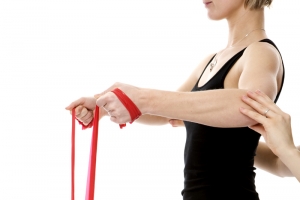The key to successful rehab is consistency
A nice analogy that I have found useful when teaching someone to pace their training is to consider training load in terms of alcohol consumption…bear with me.
Imagine that you have been set a weekly target of drinking 14 pints of beer (or your favourite equivalent).
If you were to decide to drink all 14 of those pints on the first evening then you would end up very drunk and likely have a prolonged hangover that meant you didn’t feel like drinking for the rest of the week (or ever again). It would have also meant that after a certain amount of pints that evening you would have already been drunk and the rest of the pints were just pointless excess that are likely damaging.
If you decide to be a little more sensible and drink 7 pints on two evenings that week; the effects will be less dramatic than the first scenario but once again you were likely drinking in excess and would still have a hangover. If you continued to drink like this for too long you would cause your body harm.
The best way to succeed at this challenge, whilst giving your body a good chance to recover, would be to do 2 pints each day or a structured week of 4 days of 3 pints and 1 day of 2 pints with 2 rest days.
With this analogy the getting drunk from the effects of alcohol would be similar to the acute fatigue effects from exercise, and the hangover would be similar to the soreness and tissue healing that occurs after exercise.
Obviously, exercise is far better for you than beer and you should be doing the exercise version, not the drinking!
Once you have mastered the art of pacing exercise it is important to have a rehab schedule that is varied. This has 2 main benefits – it gives your body a good variety of exercise types to make sure you are covering all the bases, and it keeps it interesting for you.
The other aspect of consistency with rehab is keeping it up over a prolonged period. It takes time for tissues to adapt and muscles to strengthen. It takes 6-8 weeks of consistent exercise to build strength in your muscles, and even longer to get changes in your soft tissues and tendons. If you were to only stick at your rehab program for a few weeks and then find better things to do you would not have given your body a chance to adapt and benefit from the exercises you were doing.
Playing sports and even carrying out new or complex tasks in daily life requires skill. It is widely accepted that skills need to be developed and practised over time. Strength is also a skill, if you want to attain a high level of it, you need to do consistent practise, just like with anything else. We all go through phases where life seems to get in the way – but always remember “Something is always better than nothing”.




